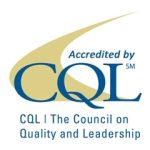SPEECH THERAPY
Our speech-language pathologists collaborate with each individual’s behavioral therapy team to promote language and communication development throughout his or her day.
What is speech-language therapy?
Speech-language therapy helps to improve a person’s verbal, non-verbal and social communication skills. Communication skills are targeted in a multi-modal approach to ensure the best possible outcomes.
What skills can speech-language therapy help?
Below are examples of skills that speech-language therapy can help develop:
- Receptive language
- Expressive language
- Pragmatic skills (social skills)
- Fluency
- Dysphagia/swallowing
- Articulation/phonology
- Augmentative and alternative communication
- Voice
- Executive functioning
- Cognition
How does speech-language therapy work?
A speech-language therapy program begins with a comprehensive evaluation by a speech-language pathologist. Following the evaluation, MAC’s speech-language pathologists collaborate with each individual’s clinical team to develop a plan and goals for therapy. Collaboration is continuous in order to ensure carryover and generalization of skills.
MAC’s speech-language pathologists maintain a Minnesota license with the Department of Health and are certified by the American Speech-Language Hearing Association (ASHA).
Augmentative and alternative communication (ACC)
All MAC speech-language pathologists have extensive training in augmentative and alternative communication (AAC) such as:
- Picture exchange communication system (PECS)
- Low-tech communication boards
- High-tech speech-generating devices
Please visit the American Speech-Language-Hearing Association’s website for more information on the communication disorders. We have hyperlinked two of these, below.


